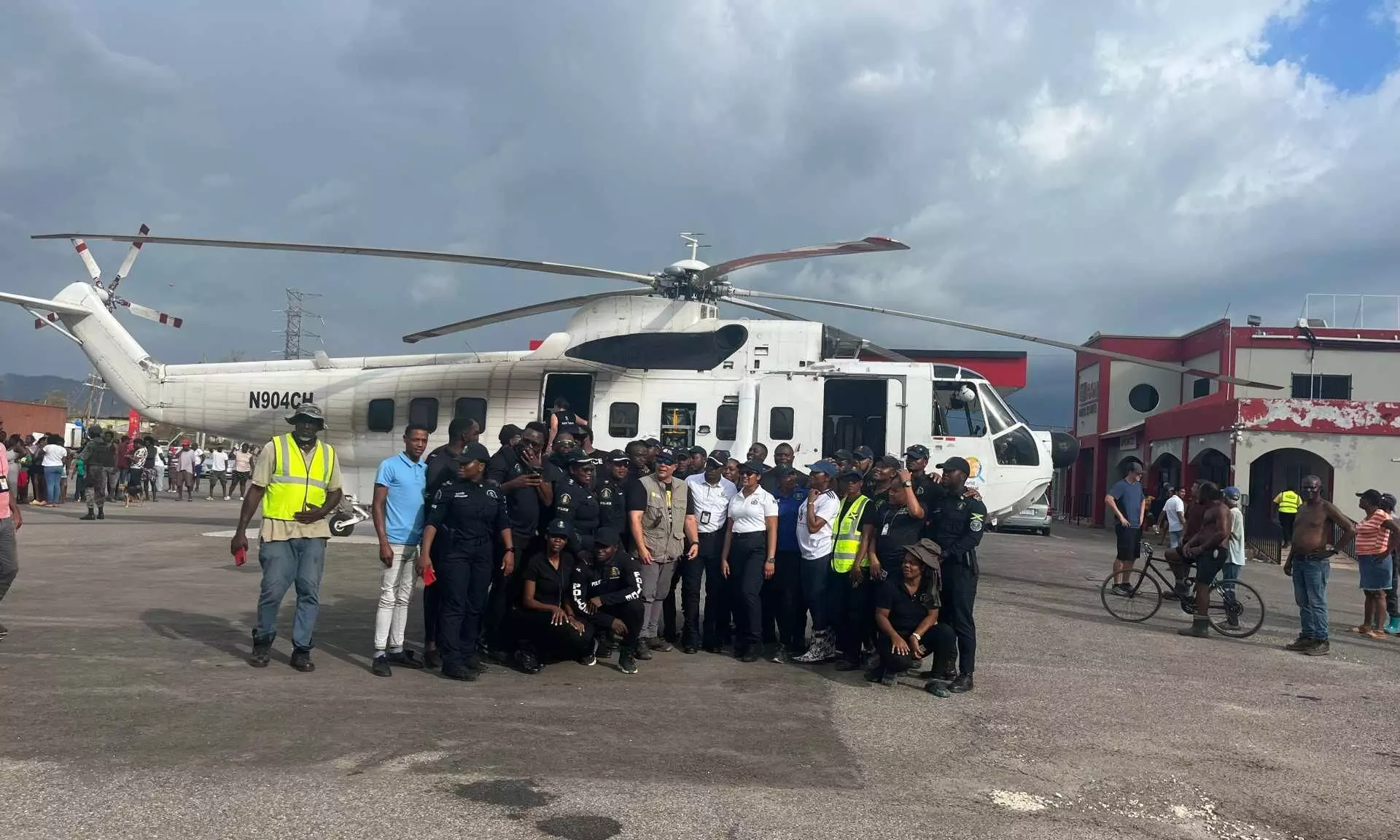
Chapman Freeborn rushes emergency airlifts to Jamaica after Melissa
The company moved teams and equipment within hours, supporting NGOs and first responders amid severe hurricane damage.

Chapman Freeborn moved personnel and essential equipment into Jamaica within hours of Hurricane Melissa’s landfall, forming part of the first global response efforts as the island suffered severe damage, widespread flooding, and major infrastructure failures that affected around 600,000 people.
Hurricane Melissa formed in mid-October 2025 near West Africa and intensified rapidly as it moved across the Caribbean. It followed an unpredictable track through Jamaica, Cuba and the Bahamas before dissipating near Iceland in early November. Jamaica faced the worst destruction, with entire communities devastated, building collapses reported and early damage estimates reaching $6–8 billion, nearly 30% of the country’s GDP. At least 32 people lost their lives and many others were injured, with relief operations expected to continue for several months.
As the storm strengthened, Chapman Freeborn prepared emergency charters for the Caribbean. The team coordinated in advance with regional operators and worked with its 24/7 Operations team in the UK to monitor NOTAMs, storm updates and risk assessments. It also sent project management personnel to Miami for real-time charter coordination.
Cam Bolton-Wilson, Vice President of Government & Humanitarian – Americas at Chapman Freeborn, says the company had already received requests from customers across public, government, commercial, NGO and defence sectors. He notes that clients were kept informed about airport conditions, aircraft availability, permits and possible schedules to ensure rapid response once the hurricane hit.
One of the first organisations to request support was World Central Kitchen. Chapman Freeborn flew the NGO’s response team from Miami to Kingston on an ERJ-145 regional jet. It also mobilised an S-61 heavy-lift helicopter from Michigan to Grand Cayman and then into Jamaica, enabling operations in the heart of the worst-hit areas.
The company arranged another rapid-response deployment for an undisclosed US-based disaster relief NGO, chartering a Gulfstream G-IV to Jamaica. It also positioned Airbus A-320s, CASA C-212, Antonov AN-12 and several turboprop and rotary aircraft across the region for evolving missions. The Antonov AN-12, familiar to Chapman Freeborn’s US Cargo team, was used to carry communications equipment into areas with damaged infrastructure.
Bolton-Wilson explains that disaster response charters differ from traditional operations because teams must move fast and enter unstable environments. He says the company aims to act ethically while balancing cost, schedule and operational need in fast-changing scenarios.
Chapman Freeborn provided mission management and trip support throughout the operation. Bolton-Wilson notes that managing expectations is crucial, as regulatory requirements still apply even in emergency settings. The brokerage team matches aircraft to mission needs and helps maintain stability during planning.
Although many aircraft prepared by the company were not ultimately used due to shifting needs on the ground, Chapman Freeborn delivered key deployment support for first responders and continued assisting relief operations in Jamaica. The contracted S-61 helicopter arrived within hours of landfall and operated until 9 November, providing essential airlift capabilities for World Central Kitchen and affected communities before returning to its home base in the United States.

